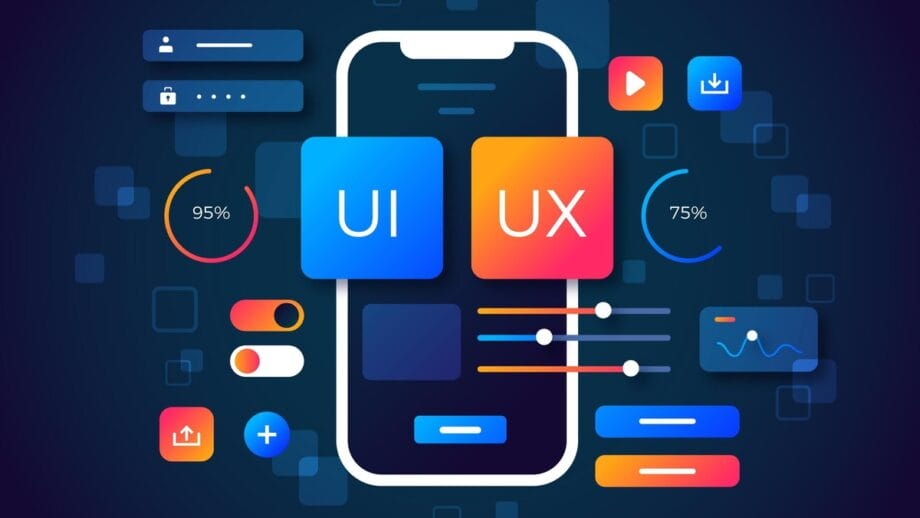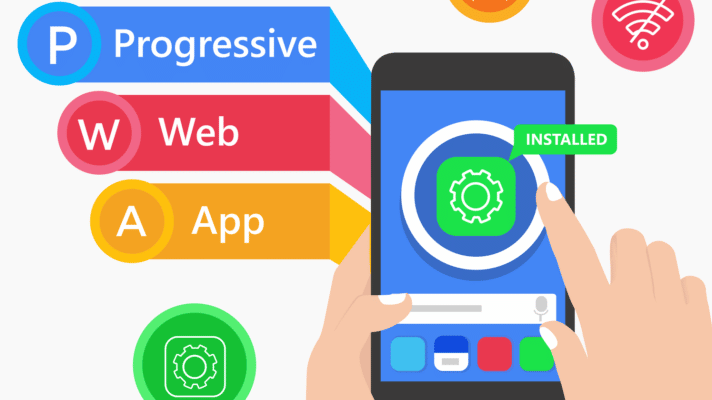The mobile app world is changing fast as we move through 2025. With over 299 billion app downloads expected this year, getting users’ attention is harder than ever.
For developers working with Android app development trends, staying updated means using new technologies that make apps better. The latest Android system keeps growing quickly, thanks to AI, 5G internet, and new tech like AR and machine learning.
This guide covers the biggest trends in Android development today. It gives developers clear ideas to build apps that meet today’s needs and get ready for what’s coming next in technology.
AI and Smart Features Are Taking Over

Using AI in Android app development has become a must-have in 2025, not just something nice to add. The Artificial Intelligence market is expected to grow $126 billion or more by 2025, showing how much AI is changing mobile apps. Developers now add smart features to create personal experiences, predict what users want, and automate tasks.
Main AI Uses in Android Apps:
- Personal content suggestions based on how users behave.
- Voice recognition and understanding what people say.
- Smart chatbots for customer help.
- Predictive text and smart keyboards.
- Image recognition and seeing what’s in pictures.
The AI in android app development trend goes beyond simple automation. Today’s apps use smart systems to learn users’ likes, make apps run better in real-time, and give helpful suggestions. Google’s ML Kit and LiteRT help developers add AI features without needing to be AI experts.
Micro-Interactions and Advanced UI/UX Design

UX design continues to evolve with micro-interactions, intuitive interface design, and animation frameworks. The latest Android design guidelines focus on creating emotional connections through thoughtful interaction design.
Advanced UI/UX Trends:
- Motion design and meaningful animations.
- Gesture-based navigation and interaction patterns.
- Adaptive user interfaces based on usage patterns.
- Accessibility-first design principles.
- Minimalist design with maximum functionality.
To hire talent in 2025, companies should focus on candidates who understand these modern design principles and can implement sophisticated user experience features.
5G Internet and Better Performance

The spread of 5G networks is changing how Android apps work and what developers can build. 5G will have a major impact on 2025 app trends, letting developers create better apps with faster real-time features.
How 5G Changes Android Development:
- Less delay for real-time games and streaming apps.
- Better AR/VR experiences with smooth data handling.
- Improved cloud-based app performance.
- Support for smart home device connections.
- Better video calls and teamwork tools.
This internet upgrade lets developers create apps that weren’t possible before due to slow connections. Real-time multiplayer games, high-quality video streaming, and complex AR experiences are now possible for regular Android apps.
Cloud-Based App Design

Cloud-based mobile apps give secure features across many devices, more computing power, better storage, and faster loading. Moving toward cloud-first Android apps is a big change in how developers build apps and handle data.
Cloud Benefits:
- Easy data sync across multiple devices.
- Less storage is needed on devices, and better performance.
- Better growth options for more users.
- Improved backup and recovery options.
- Cost-effective system management for developers.
Statista says worldwide SaaS spending will reach $232 billion by 2025, showing how important cloud solutions are becoming in mobile app development. Developers who use cloud-first designs can deliver stronger and more flexible Android apps.
Better Security and Privacy Protection

Security has become an utmost important concern in Android development, with mobile apps facing more difficult threats. Mobile app attacks jumped to 83% up from 65% the year before, making security a critical trend for 2025.
Important Security Features:
- End-to-end protection for data sending and storage.
- Fingerprint and face recognition login.
- Multiple-step login systems.
- Regular security checks and vulnerability tests.
- Following GDPR and other privacy rules.
Android developers must focus on security from the start, not add it later. This includes using secure coding practices, regular security testing, and staying updated with new threats and how to stop them.
Apps for Folding Phones

The growing folding phone market brings new chances and challenges for Android developers. This will be a big year for foldable phones, so app developers must plan for them. Creating apps that work well on different screen setups has become essential.
Folding Phone Development Needs:
- Flexible design that adapts to multiple screen setups.
- Good user experience for both folded and unfolded states.
- Smart resource use for different display modes.
- Testing on various folding phone brands.
- Multi-window and multi-resume features.
The future trends in Android mobile apps clearly show that flexible screen technology will become more common, requiring developers to think beyond regular flat screens.
AR and VR Integration

AR and VR technologies are becoming normal in Android apps, moving beyond games into practical uses like shopping, healthcare, and education. Adding such immersive technologies requires developers to learn new frameworks and optimization methods.
AR/VR Use Areas:
- Virtual product demos for shopping apps.
- Educational apps with interactive 3D models.
- Navigation apps with real-world overlay info.
- Social media apps with AR filters and effects.
- Healthcare apps for medical training and patient education.
The latest Android development tools now include better support for ARCore and other immersive technologies, making it easier for developers to add advanced AR/VR features.
Progressive Web Apps (PWA) Growth

The line between native Android apps and web apps keeps getting smaller with better Progressive Web App technology. PWAs offer developers a way to create app-like experiences that work across platforms while keeping web technology benefits.
PWA Benefits for Android Development:
- Cross-platform compatibility reduces development costs.
- Better performance with offline features.
- Easier maintenance and updates through web technologies.
- Better user engagement with push notifications.
- Less app store dependency and faster deployment.
Low-Code and No-Code Development Platforms

The global low-code development platform market was $28.75 billion in 2024 and is expected to grow at 32.2% per year, showing a big shift in how Android apps are developed. These platforms make app development easier while enabling fast prototyping and deployment.
Low-Code Benefits:
- Faster development cycles and quicker time-to-market.
- Lower development costs for simple to medium complexity apps.
- Easier maintenance and updates for non-technical stakeholders.
- Standard security and performance improvements.
- Integration capabilities with existing business systems.
However, developers should know that complex apps requiring extensive customization may still need traditional development approaches.
Internet of Things (IoT) Integration

Android apps are increasingly becoming control centers for IoT systems. Connecting smart home devices, wearables, and industrial IoT systems requires developers to understand new communication methods and data management strategies.
IoT Development Needs:
- Bluetooth Low Energy (BLE) and Wi-Fi communication methods.
- Real-time data processing and display.
- Device management and firmware update capabilities.
- Energy-efficient background processing.
- Security methods for device authentication and data protection.
The future trends in Android mobile apps strongly show that IoT integration will become a standard feature rather than a specialty application.
Green and Sustainable Development Practices

Environmental awareness has influenced Android development practices, with developers focusing on creating energy-efficient apps that use less battery and reduce environmental impact.
Sustainable Development Practices:
- Optimized code that uses less CPU and battery.
- Efficient image compression and loading techniques.
- Minimal data usage through smart storage strategies.
- Dark mode implementations for OLED display energy savings.
- Sustainable hosting and cloud infrastructure choices.
Voice User Interface (VUI) Integration

Voice-activated features are a standard feature in Android apps, driven by the popularity of voice assistants and the need for hands-free interaction. Developers are adding voice commands, conversation interfaces, and voice search to improve user accessibility.
Voice Interface Implementation:
- Google Assistant integration for voice commands.
- Speech-to-text and text-to-speech capabilities.
- Voice navigation and accessibility features.
- Multi-language voice recognition support.
- Context-aware voice interactions.
Cross-Platform Development Framework Adoption

Since native Android development remains important, cross-platform frameworks like React Native, Flutter, and Xamarin are gaining popularity for their ability to reduce development time and costs while maintaining performance.
Cross-Platform Benefits:
- Single codebase for multiple platforms.
- Faster development and deployment cycles.
- Consistent user experience across devices.
- Reduced maintenance overhead.
- Access to native device features and APIs.
Conclusion

The android app development trends have both challenges and opportunities for developers. For success, using AI integration, optimizing for 5G connectivity, implementing strong security measures, and sustainable development practices is changing how developers approach mobile application creation.
The combination of cloud-based designs, progressive web applications, and sustainable development practices is reshaping how developers approach mobile application creation.
As the industry continues to evolve, developers who adapt to these trends while maintaining focus on user experience and performance will create applications that not only meet exciting market demands but also get ready for future technological advances.
For businesses wanting to use these trends, joining hands with experienced Android app development services providers, who understand these new technologies, becomes important for staying competitive in the speedy mobile marketplace.






